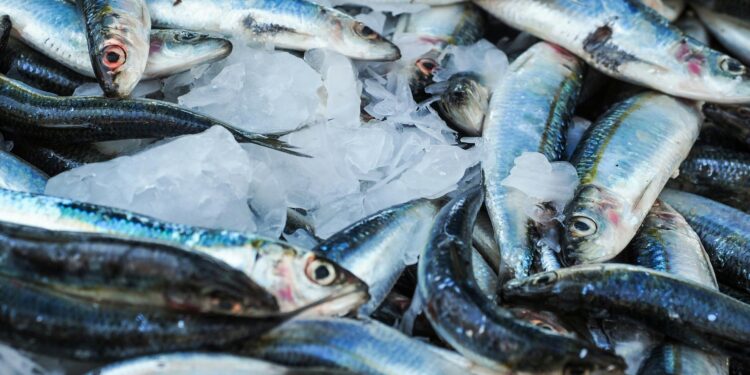Credits: energepic.com from Pexels
Millions of women working in the fishing industry are being left behind as technologies develop to counter the effects of climate change and economic pressures.
A new study by the University of East Anglia (UEA) looks specifically at the fisheries and aquaculture sectors, where women make up 50% of the total workforce. Despite their significant contributions, women often remain invisible, unpaid or underpaid, with their work seen as an extension of household chores.
The findings, “A systematic review of the impact of post-harvest aquatic food processing technology on gender equality and social justice,” are published today in Natural food.
Fisheries and aquaculture are an important source of livelihoods, food and nutrition for many of the world’s poorest people, supporting approximately 67 million people worldwide directly and approximately 492 million people indirectly. Fisheries and aquaculture provide approximately 17% of animal protein for human consumption, but more than a third of the global harvest from fisheries and aquaculture is lost or wasted.
Professor Nitya Rao, Professor of Gender and Development at UEA and Director of the Norwich Institute for Sustainable Development, is the lead author. She said: “Given the large number of people, particularly women, engaged in post-harvest activities globally, this study aimed to better understand how processing technology and technical changes have impacted on those engaged in this sector, and how labour, resources, power and decision-making are influenced and changing in this process.
“In the context of climate change and other economic pressures, we are seeing rapid development of post-harvest technologies aimed at improving productivity and efficiency, reducing losses and waste, and ensuring quality. Yet, if the social justice dimensions of these changes are not addressed, there is a risk that they will exacerbate pre-existing and persistent inequalities.”
Women are disadvantaged in access to traditional and modern technologies, including control over resources. They often lack access to social protection benefits, including minimum wages, health insurance, housing and transportation, due to their concentration at lower levels of the labor hierarchy.
As firms grow and adopt more capital-intensive technologies, women often report less agency and lower equity outcomes due to a combination of resource constraints, individual characteristics such as education, social norms, and caregiving responsibilities.
In larger factories that use advanced technologies, women and migrant workers tend to have lower status, often temporary and lower-paid jobs, culturally stereotyped as “women’s work,” experience gender pay gaps, lack access to workers’ rights and management positions, and are exposed to occupational health risks. Divisions of labor are marked, reinforced by social norms.
While power and control over resources are more unequal in factories, they are not necessarily so in traditional settings, even though they offer greater flexibility. While sometimes less productive, these technologies generally allow women to better appropriate resources. This creates a trade-off between increased productivity, increased income, and gender equality, as reflected in women’s control over resources and decision-making power.
Julie Bremner, from the UK Centre for Environment, Fisheries and Aquaculture Science and co-author of the paper, said: “Aquafoods are a key part of our global food system, particularly for seafood-dependent nations such as the large ocean states, and demand for aquatic products is set to increase. The sustainability of these foods depends not only on their environmental and economic footprint, but also on their impact on social equity.
“Our analysis shows that there is still a long way to go on equity, but there are opportunities waiting to be seized.”
The study makes several recommendations for policy, research and practice:
- Fisheries policy development must address the entire aquatic food system, beyond capture fisheries and aquaculture, through to post-harvest processing, storage and consumption.
- More rigorous and comparative research is needed to examine the impacts of a range of technologies on different groups of people, including women and men, young and old, migrants and non-migrants, and to formally consider intersectionality.
- Diverse voices, particularly those of women and migrant workers, should be included in policy-making and investment decisions regarding post-harvest processes at local, national and global levels in the development and deployment of improved technologies.
The research team, which included other colleagues from UEA and the Norwich Institute for Sustainable Development, reviewed 42 studies covering 55 sites in India, Bangladesh, Cambodia, the Philippines, Japan, Canada, the United States, Mexico, Brazil, Norway, Ghana, Nigeria, Tanzania and Zambia.
More information:
A systematic review of the impact of post-harvest aquatic food processing technology on gender equality and social justice, Natural food (2024). DOI: 10.1038/s43016-024-01034-6
Provided by the University of East Anglia
Quote:Women in global fishing industry falling through safety net, study finds (2024, August 27) retrieved August 27, 2024 from
This document is subject to copyright. Apart from any fair dealing for the purpose of private study or research, no part may be reproduced without written permission. The content is provided for informational purposes only.



